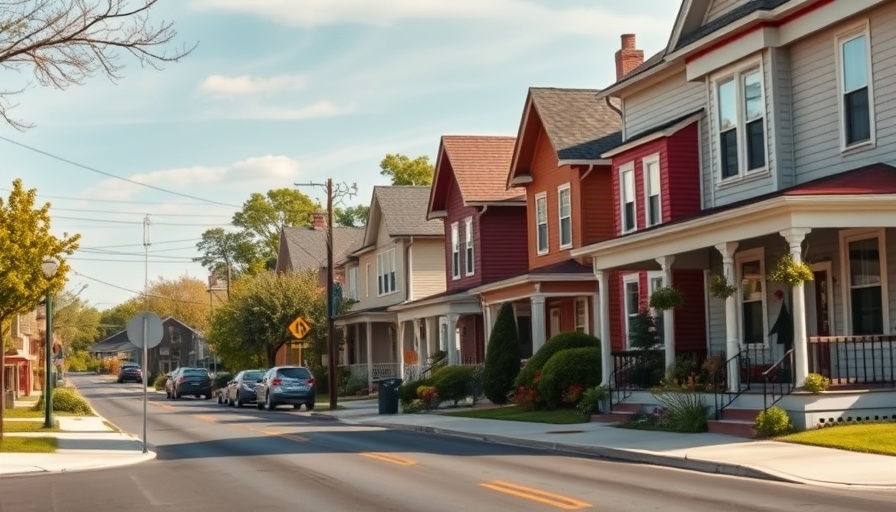
The Push for Property Tax Abolition in Ohio: A Citizens' Initiative
In an unprecedented move, a group of determined Ohio homeowners is taking matters into their own hands to combat rising property taxes, which have recently escalated to a critical level for many residents. Leading this charge is activist Beth Blackmarr, who heads the Citizens for Property Tax Reform. Her group is currently working to get a constitutional amendment on the November ballot aimed at abolishing property taxes altogether.
This grassroots initiative is a response to the soaring tax burdens that some, like Cleveland homeowner Marlene Homan, have experienced firsthand. Homan, who relies on Social Security, finds it increasingly challenging to manage her financial obligations as property taxes climb. "When you’re on Social Security, that’s a lot of money," she expressed, highlighting the strain these taxes place on individuals and families—especially the elderly and those on fixed incomes.
The Inaction of Legislators and the Call for Reform
The lack of movement among lawmakers has only fueled the urgency of this citizen-led effort. Blackmarr argues, "We really need change because nothing was getting done — substantially," indicating a growing discontent among citizens who feel that their voices are not being heard. Her sentiment resonates with many Ohioans who feel abandoned by a legislative body that, according to them, is slow to act on significant issues affecting their daily lives.
State Rep. David Thomas (R-Jefferson), tasked with addressing property tax relief, acknowledges the concerns but asks for patience, stating, "I know our members are motivated, it's just also getting it right..." This indicates a tension between the desires of constituents and the cautious approach of lawmakers, who are tasked with creating effective sustainable policy.
Potential Consequences of Eliminating Property Taxes
While the movement advocates for the complete abolishment of property taxes, Governor Mike DeWine has voiced concerns regarding the implications such a decision could have on local government financing. "I understand [their concerns], but they have an obligation — I think a moral obligation — to come forward and explain how they’re going to pay for schools, how they’re going to pay for the things that we value in Ohio," he emphasized. Many schools across the state depend heavily on property taxes, with some Cleveland-area schools relying on these taxes for as much as 80% of their funding.
This dilemma raises important questions about funding alternatives. Blackmarr has suggested solutions such as a school district income tax to help offset the loss of property tax revenue, illustrating a desire for comprehensive financial reform that meets community needs without jeopardizing essential services.
A Future Without Property Taxes: Feasibility and Community Impact
The notion of abolishing property taxes may seem radical but could reflect a broader trend. Many individuals are not only seeking relief from financial burdens but are also advocating for a reexamination of how local governments raise funds. For Ohioans who have been priced out of their homes, this initiative represents a fight for equitable treatment within a tax system that many see as outdated.
Effective communication and collaboration between advocates, lawmakers, and community members will be essential to explore viable alternatives to property taxes. Understanding the financial ecosystem of local services is critical as these discussions unfold.
The Way Forward: Civic Engagement and Community Activism
This movement underscores the importance of civic engagement and community activism in American democracy. The efforts to place a constitutional amendment on the ballot demonstrate the power of organized, grassroots action as a means to challenge established political processes. It is a powerful reminder that citizens can rally for change when they feel neglected by their representatives.
As Ohio gears up for the potential of this amendment on the upcoming ballot, many citizens are left questioning what the implications of such a change would be on the local economy, infrastructure, and community well-being. The outcome could either empower homeowners or rethink the funding structure of valuable public services across the state.
 Add Row
Add Row  Add
Add 




Write A Comment